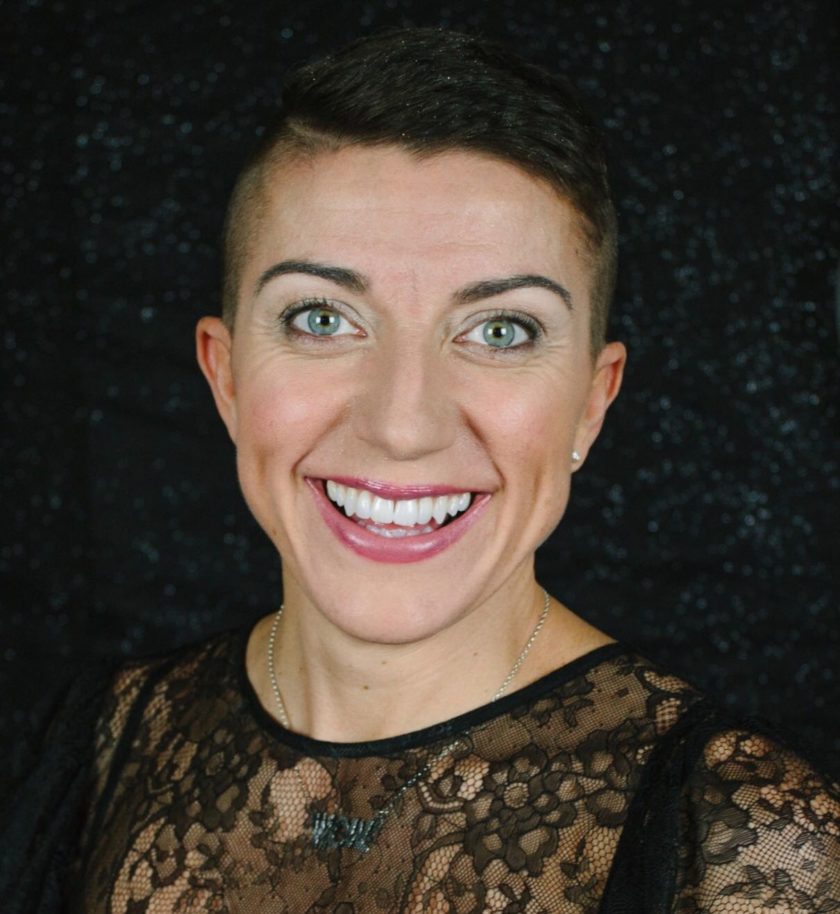Michelle Hoskin, managing director of Standards International, used Lockdown to take Mental Health First Aider training – a course which both opened her eyes and was instantly usable, she says
Given all of the obvious distractions, I decided to make 2020 my year of learning: a year for broadening my knowledge in areas that were not ‘obviously’ linked to my work. But then I came across the Mental Health First Aider training delivered by Mental Health First Aid England. I can honestly say it was one of the most rewarding bits of learning I have ever done, and I think that’s because I was able to instantly put it to great use!
The course was broken down over two weeks. There were four morning sessions and after each session I was left in emotional pieces. During each session I had felt every feeling possible – happiness, sadness, anger, frustration – I could go on. Buy why? Because I could see that either myself, my friends or my family members had sadly suffered from one or more of the mental illnesses that I was learning about.
One thing that really struck me was that, in the same way we all need to take care of our physical health, we also all have to make time for our mental health. One of the most important things we can do for ourselves is to schedule self-care, in other words ensuring that we schedule time to focus on our own wellness, wellbeing and mental health.
Scheduling this time is not an indulgence but sadly that is often how so many of us see it.
I’d like you to make me one promise. It’s really a promise to yourself but given all of the pressures and complexities of life I believe having positive mental health will be our superpower.
So as you sit down to map out your own personal goals for 2021 and maybe even plan your own learning and development – think about what you need to do for yourself, what learning and development will broaden your own skills and abilities outside of your work or your job. Think about what you need to be well, to thrive and become a happy human. See my presentation How to be a Happy Human at HUM 2019. https://youtu.be/3kqgtRXBQ1Y
Some food for thought!
- We all have mental health challenges and the wellness of our minds depends on many, many factors – too many to list!
- Mental ill-health is a real thing – it can affect us all. It is part of everyday life at different levels for everyone.
- According to the Royal College of Psychiatrists’ Mental Health and Work report in 2008, it was estimated that at any given time ‘one-sixth of the working age population experience symptoms associated with mental ill-health’ (e.g. sleep problems, fatigue, etc), symptoms which do not even meet the criteria for diagnosis. This was in 2008! Imagine what the figures would be for us now in 2020! Added to this, their No health without public mental healthpositioning statement PS4/2010 estimates that mental illness is the ‘largest single source of burden of disease in the UK. No other health condition matches mental illness in the combined extent of prevalence, persistence and breadth of impact.’
- I bet that, like me, you can count on both hands (and probably your feet too!) the people you know, or know of, who have at some point experienced some form of suffering due to mental ill-health.
Sadly, there is no magic wand, silver bullet and/or answer to all of this. However, there are some hacks, tricks, tips and insights which can definitely help.
In 2008, the UK Government commissioned a review into what actually contributes to a person’s overall wellbeing. That review was conducted by the New Economics Foundation (NEF) on behalf of Foresight* and it drew on state-of-the-art research from across the world to consider how to improve everyone’s mental capital and mental wellbeing through life.
The evidence suggests that a small improvement in wellbeing can help to decrease some mental health problems and enable people to flourish.
And remember this is not just for the grown-ups… according to the Mental Health of Children and Young People in England, 2017 [PAS] Publication Date: 22 Nov 2018, ‘1 in 10 children aged 5-15 had a mental health disorder (either emotional, behavioural, hyperactive, or other)’. In the newly released 2020 figures, this has risen to 6 in 10. These figures are startling.
The NEF’s Five ways to wellbeing sets out five core actions to improve personal wellbeing. The guideline has been adopted worldwide (including Australia, New Zealand and Canada,) and if there was ever a time to direct our attention to this… it’s now!
The five ways to mental wellbeing:
2. Connect
Connect with yourself and with those important people (and things) in your life! There are always going to be people who you know you should have in your life, as well as those you’re not sure should be and you have no idea how they got here! Whether it’s over phone, Zoom, FaceTime or a simple text: make an effort to connect. Talk, laugh, moan and groan – it doesn’t matter but ONLY surround yourself with people who bring out the absolute best in you.
Hack: Protect your mind for the first 8 minutes after you wake and focus only on forming positive plans or intentions for your day! Keep the phone away!
2. Be active
Get out! Move, do a workout at home, run, even take a walk and if you can, get back into your physical groups and clubs! Exercising makes you feel good and of course, most importantly, try to find a physical activity you enjoy, that can keep you motivated and engaged, and that suits your level of mobility and fitness.
Hack: Within the first hour of being awake do at least 10 minutes of exercise! Jog on the spot, do 20 jumping jacks or bench press the kids if you have to!
3. Take notice
Take notice of everything. Watch and listen! Be naturally curious about the people and the things around you. Make sure that you catch sight of all the beautiful moments that you perhaps haven’t noticed before because life is nuts and we rush around way too much! Savour the moments that will be gone again in a flash. Be aware of the wider world and what you are feeling. Reflecting on your experiences will help you appreciate what matters the most.
Hack: Practice gratitude. It could be every morning or every night before you go to bed. Simply write down at least three things you are grateful for and let the endorphins do the rest!
4. Learn
Try something new. Rediscover an old interest. With the abundance of free content available, there really is no excuse! You can even become a Harvard or Yale graduate from the comfort of your own sofa! Push yourself, offer to help your team, take on a new role or new responsibilities. Read that book that’s been collecting dust on your bookshelf. Learn to play an instrument or how to cook your favourite food. Set a challenge you will enjoy achieving while in lockdown. Get stimulated, upskill and increase your confidence and pride!
Hack: Allocate 2 x 25 minute slots each day to learn something that you didn’t know before. Go on – you can do it!
5. Give
Give to others, but not before you have given to yourself! At a time of crisis, people’s true colours and character are shown so encourage the best of you to shine. Do something nice for a friend, or even for a stranger, because let’s be honest, we may not all be in the same boat, but we are in the same storm! Also smile: it’s amazing how that gesture alone will make others feel!
Hack: Pick two neighbours, knock on their door and when they open it, say ‘Hi, I thought I would just check in to see if you were doing OK?’.
As we enter into another year of goodness knows what, please remember one thing!
… and in case you need more fuel to get you inspired to take extra special care of yourself, here are a few of our favourite further resources for you to enjoy:
Links to get you thinking:
• The stand up kid: https://www.youtube.com/watch?v=SE5Ip60_HJk
• Empathy (Brené Brown): https://www.youtube.com/watch?v=1Evwgu369Jw
• The influence of social networks (Nicholas Christakis): https://www.youtube.com/watch?v=2U-tOghblfE
• Sleep is your superpower (Matt Walker): https://www.youtube.com/watch?v=5MuIMqhT8DM
• 3 secrets of resilient people (Lucy Hone): https://www.youtube.com/watch?v=9-5SMpg7Q0k
• Wellbeing – what’s most important to you (Michelle Hoskin): https://soundcloud.com/littlemisswoww/wellbeing-whats-most-important-to-you
• The WOWW! Hour with Michelle Hoskin and Sarah Ambrose: https://soundcloud.com/standardsinternational/the-woww-hour-with-sarah-ambrose
This article was first published in the February issue of Professional Paraplanner.



























